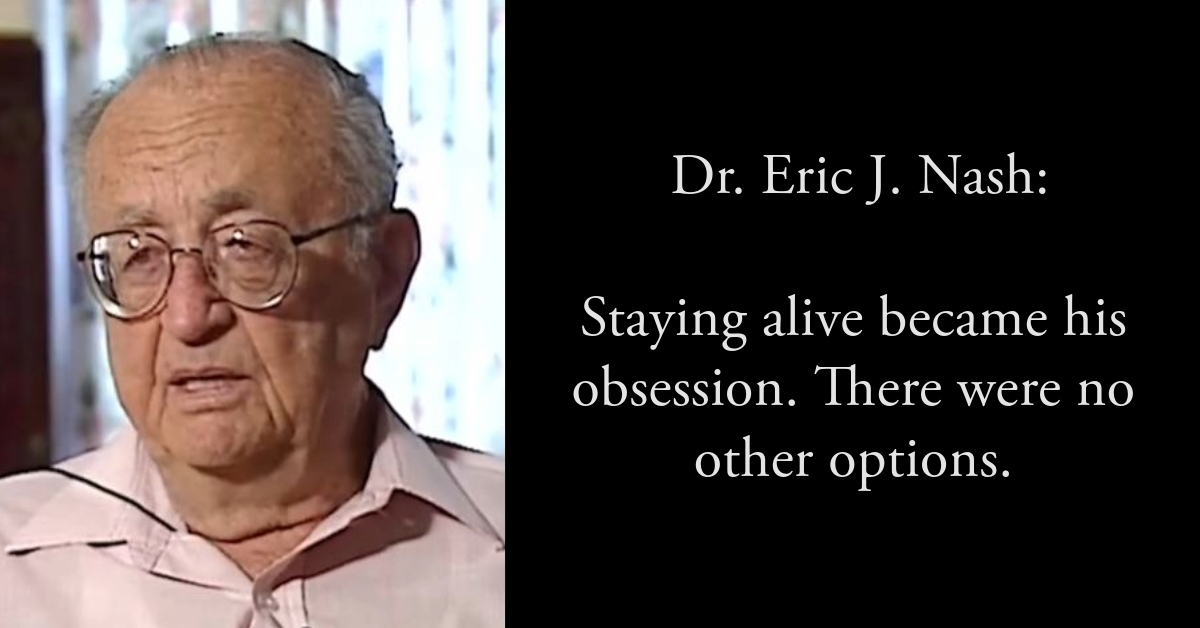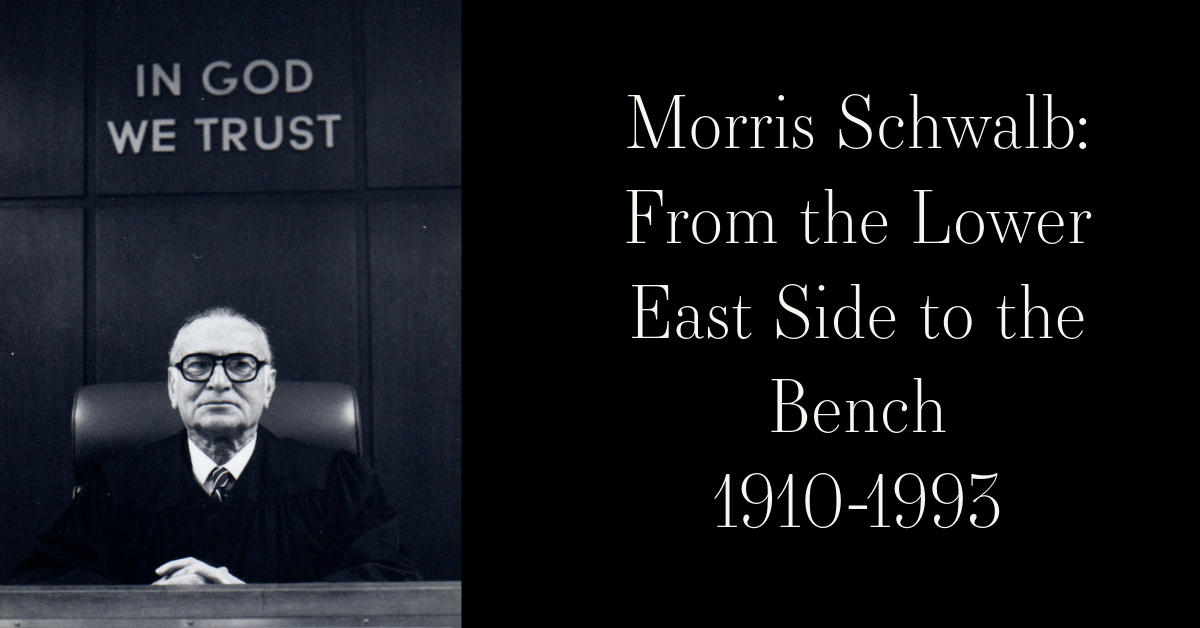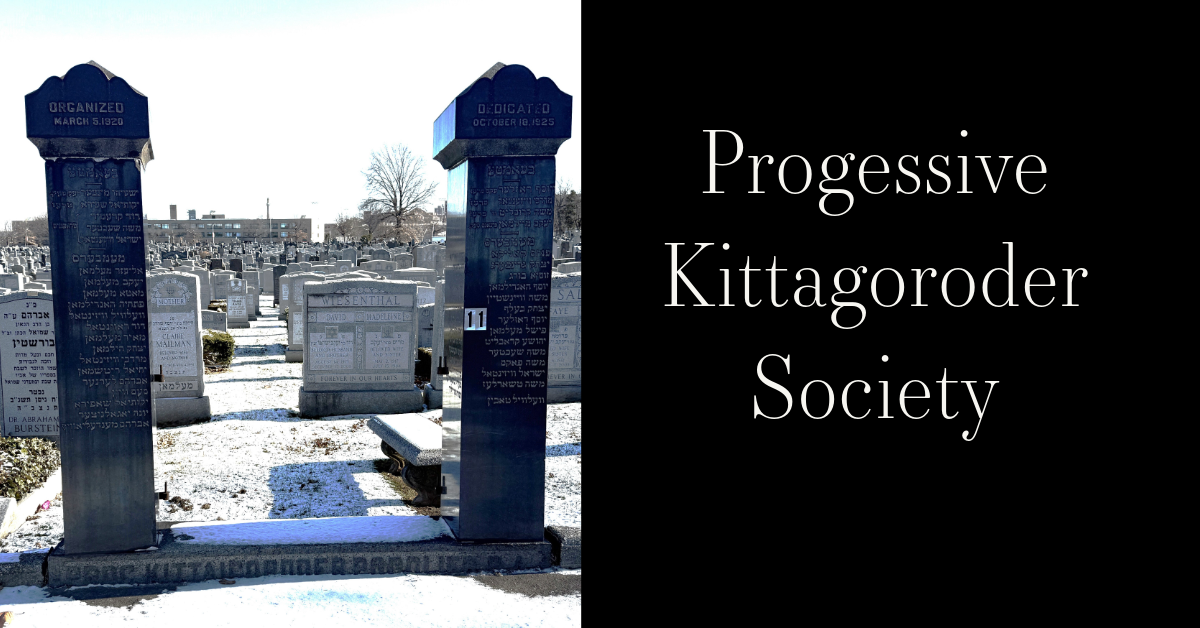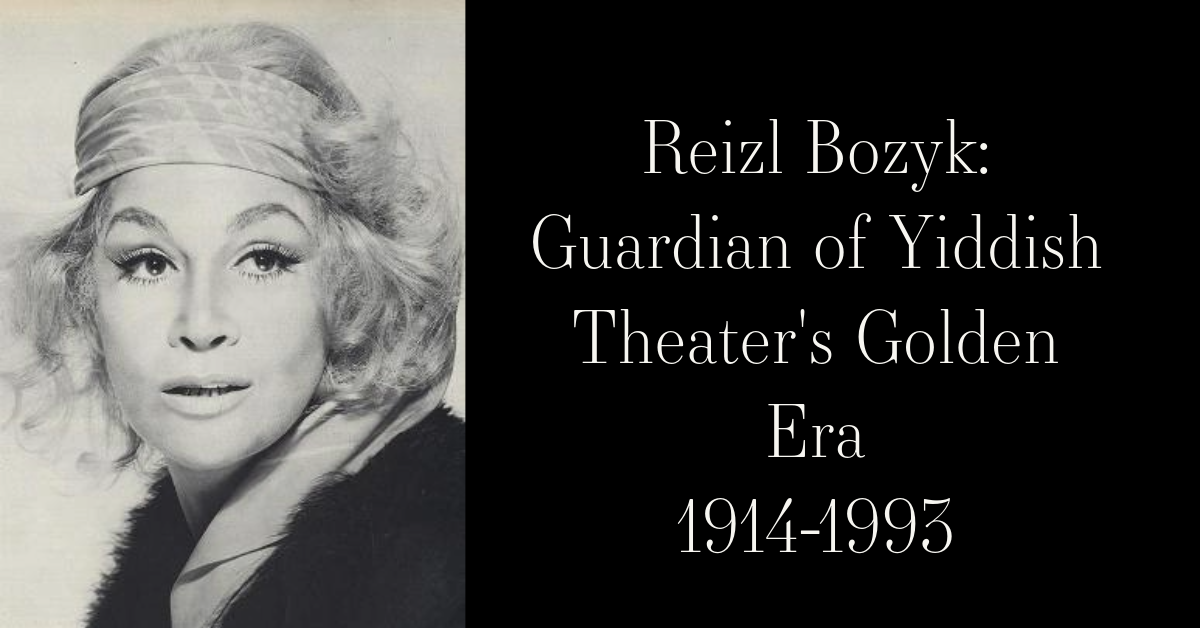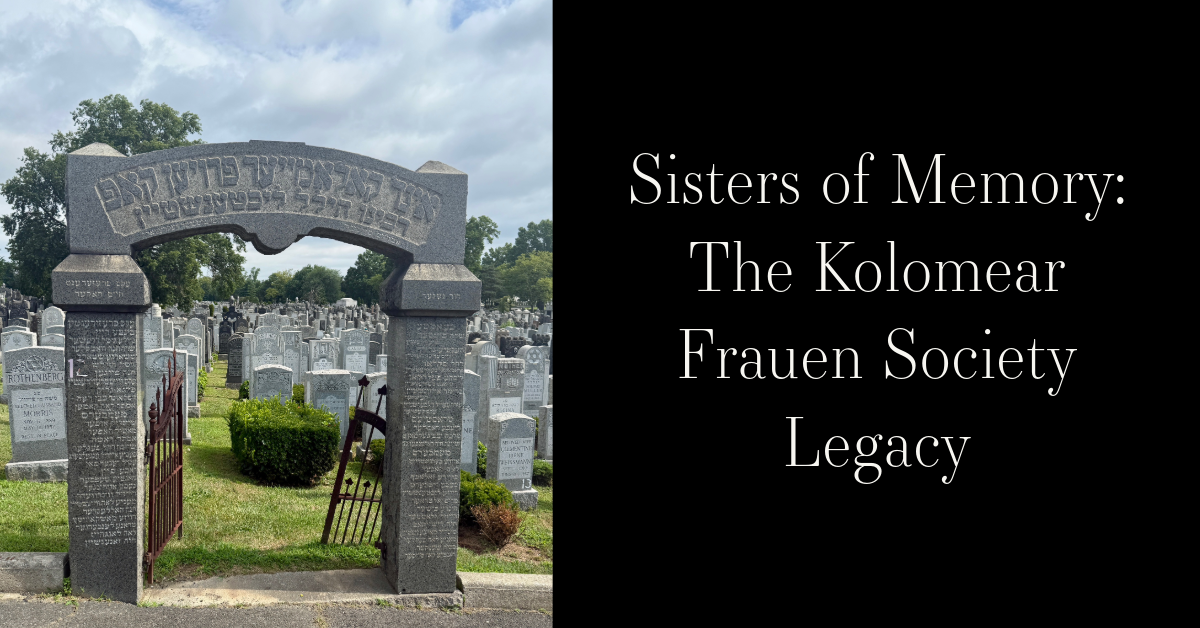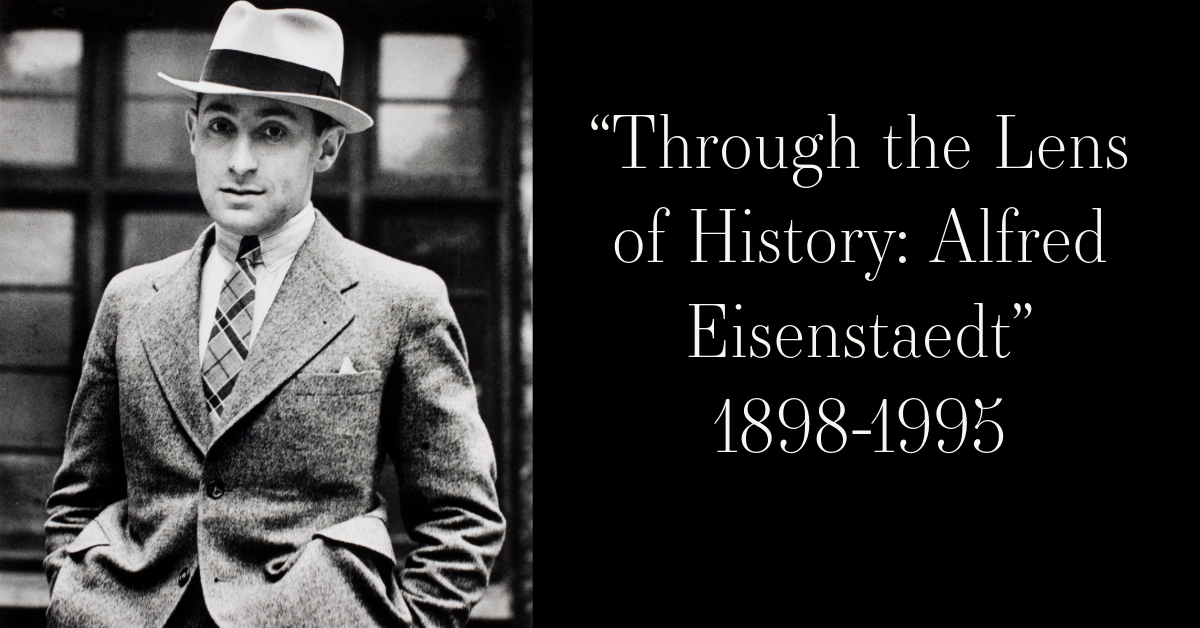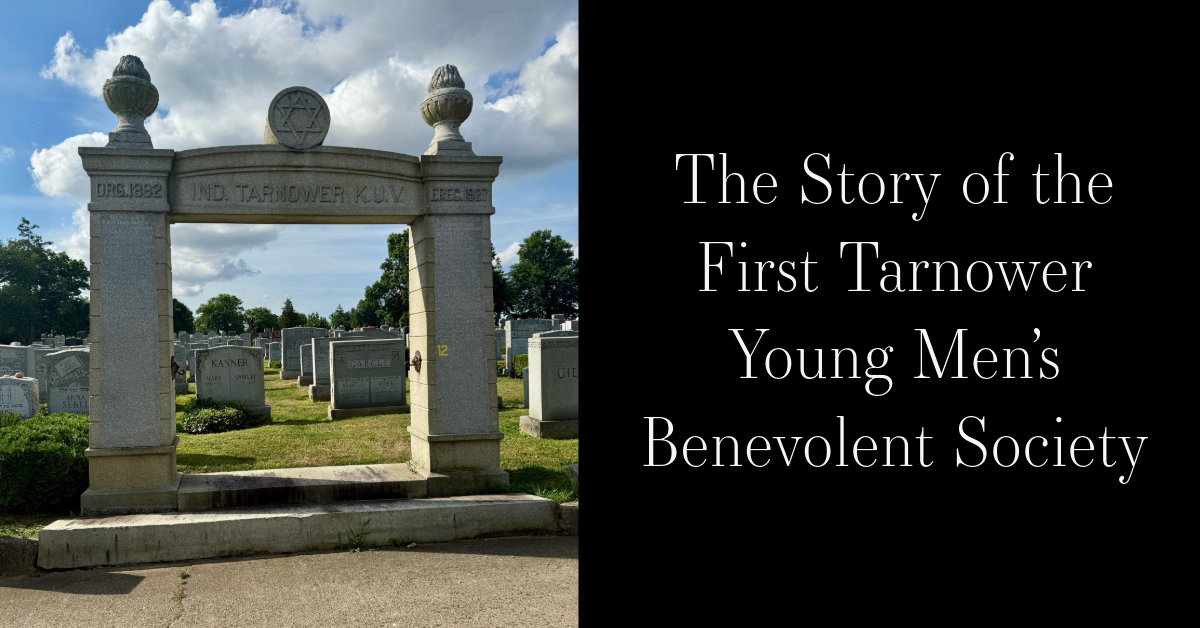Dr. Eric J. Nash:
Staying alive became his obsession. There were no other options.
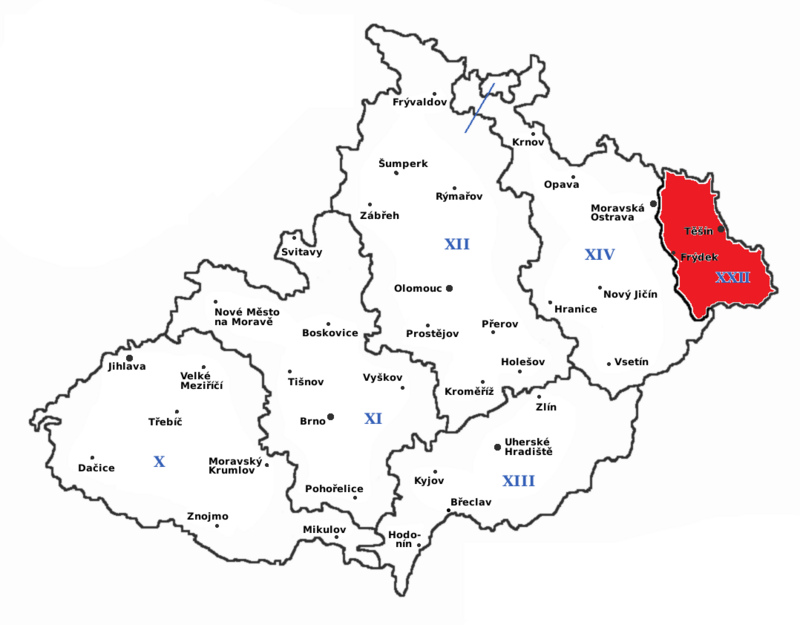
Dr. Eric Nash was born on July 28, 1910 in Holesov, Czechoslovakia to a Jewish albeit non-religious family. Eric lived with his mother, Irma, his father, and his older brother and sister. Mr. Nash was a wealthy grain merchant. Eric attended a Jewish Public School for three years. He described his families’ life in the Austria-Hungarian Empire as not bad at all, except that they always lived in the shadow of antisemitism which was all over Europe but especially in Eastern Europe. The Nash family had no bad experiences as far as this was concerned until the end of the war when there was a short period without law and order. There had been no government established yet in the Czech Republic.
Eric recalled a “real murderous pogrom” which took place when he was a little older than 7 years old and home alone with his father since Irma and his siblings were in Vienna. He remembered hearing a lot of h yelling and shooting before his father pulled him out of bed in the middle of the night, putting a winter coat on top of Eric’s pajamas and escaping with Eric into the attic. Eric stated how terrifying it was to hear their home being plundered and robbed. Eric and his father overheard the men contemplating whether to set the family home on fire. This did not happen because either the men thought better of this idea or else they were chased away. They ended up simply leaving the Nash home. After remaining hidden in the attic for many hours in absolute anguish, Mr. Nash and Eric went downstairs to discover their home in shambles. There was not one single drawer which was not emptied and their entire home was ruined. Mr. Nash took Eric to the railroad and then they traveled to Vienna. Mr. and Mrs. Nash would later decide to relocate their family to Vienna due to the Pogrom.
The Nash family resided in Vienna until 1936. When Eric was older, he was in and out of Czechoslovakia and served in the Czech army. He later realized that Czechoslovakia was as close to an economic cultural paradise as anyone could want. There was no economic crisis in Czechoslovakia as there was in Austria all the time. Czechoslovakia was a prosperous country where almost everyone did well with hardly any employment. Eric describes his life there as “beautiful.”

The lives of the Jews in Czechoslovakia were as free as anyone could want. The Nash family remained in Vienna in the 1920’s and 1930’s. Mr. Nash established a business there, first as a grain merchant and later as a lumber merchant. Eric’s brother attended the University in Vienna and became a lawyer. Eric’s sister remained in the family home. In Vienna, Eric entered Public School when he was in the third grade and soon after he started, Eric was approached by a student who asked, “Are you a Jew?” In Vienna, there was a subdued but always present antisemitism. The Nash family took it in their stride since it wasn’t really malignant, violent or bad. Of course, one was only ostracized if he was Jewish. There were 3-4 Jews in Eric’s class. Eric was switched into a different public school in the city. In this school, Eric felt absolutely no antisemitism.
The Nash family celebrated the High Holy days when Mr. Nash went to temple. He attended services whenever there were holidays and also on Saturdays. The Nash children were raised in a semi religious background. Irma lit Shabbos candles and the family had a festive Friday night meal. Eric stated, “I don’t think we kept the laws too well.” The family rode the tram and drove their car on Shabbos. Eric’s brother married and moved away. His sister also married later in life and she and her husband resided with the Nash’s until their deportation.
In 1928, Eric graduated from the Gymnasium High School. That year, Eric’s father died of a heart attack. Against his families’ wishes, Eric entered Medical School. Due to Mr. Nash’s death, the family was no longer in a good financial position. For this reason, the family wanted Eric to make a living. Eric promised his mother that he wouldn’t be a burden. Eric was employed while in med school in order to pay his own tuition. At that time, Eric had no problem attending Medical School as a Jew. He attended the University of Vienna Medical School, which was, at that time, a leading medical authority in the world. Eric recalls having a prominent professor by the name of Dr. Sigmund Freud. There were constant fights within the Student Organizations (SO) in the medical school since their members were rabid antisemites. Whenever members of the SO approached a Jewish student, it was usually 5 against 1. The group would call the Jewish students names and assault them. Eric recalled that when the SO medical students were studying Anatomy on a human cadaver, they used the bones, arms or extremities as weapons for assaulting the Jews.
Eric’s Anatomy Professor was a former Jew named Professor Tundler. The Professor was unable to remain Jewish out of fear that his job would be terminated. Professor Tundler always helped the Jewish students and provided moral support. Eric studied medicine from 1929 until 1934.
In January 1933, Hitler came to power just when Eric was at the end phase of his medical studies. At the time, there was a strong Nazi movement in Austria. Eric noticed a significant rise in antisemitism. People wore brown shirts with swastikas on their arm sleeves. Later on, the Nazi party was outlawed. However, the Nazi’s found another method and wore white stockings. People knew that whoever wore white stockings were Nazis. Eric recalls feeling frightened at how many Nazis there were.

Upon his Medical School graduation, Eric did a rotating internship. He got his post graduate education in various Viennese hospitals for the next two years. In 1935, Eric was about to enlist in the Viennese army when he instead took a job as a Physician in Carlsbad, Czechoslovakia. Eric commuted back and forth between Austria and Czechoslovakia. Eric stated that, when in private, the Germans in Czechoslovakia were very friendly but publicly they had to show some antisemitism.
When doing his rotations, Eric had problems being Jewish. There was always latent antisemitism although it was not out in the open until Hitler came into power. However, it did not really interfere with Eric’s education and people were able to go about their business.
In October 1, 1936, Eric entered the Czech Army and served for two years. He did his basic training in Prague and it was very rough. The basic training toughened Eric up which would turn out a major factor that helped Eric survive the War since Eric got into pretty good shape. After completing basic training, Eric became a Physician in the Czech army and he stated that he had a great time since there was hardly any antisemitism in the army.
As a new Physician, Eric met many Physicians who did not make any secret of their antisemitism. They did not speak to Eric or have any social contact with him. Eric said that he and his fellow Jewish soldiers did not feel any ostracism or alienation. Eric shared that he felt that life in Czechoslovakia was basically almost Paradisiac since was complete freedom and the Jews had absolute equality in front of the law. Jews could become whatever they wanted in Czechoslovakia. In fact, the Minister of Health was Jewish.

Eric remembered when the Nuremberg Laws were passed. Hitler was in complete control and already had occupied the Rhineland. Eric felt that people should have seen the writing on the wall. However, they felt very secure because, since WWI, they had a whole series of Military arrangements with England, France and Russia. All three of these super powers at that time were obligated to come to their help in case they should be attacked.
In only a few days, the trucks came rolling in with the tanks and the German Army. Eric felt that it was such a shock to see your country invaded by this unbelievable efficient military machinery. He was not in the Sudetenland when the Germans occupied. He was in Southern Moravia which was a German part of Czechoslovakia. When the Germans came to power, the whole world changed. According to Eric, “Czechoslovakia went from a most pleasant peaceful place to a horror place.”
On November 19, 1938, after Eric was demobilized, he married Erna Knoll. They were married a week after Kristallnacht occurred when the horror began to become real. One of Erna’s brothers was killed in Vienna during Kristallnacht. That cast a tremendous shadow on their honeymoon. Their whole world crumbled and they were in such turmoil that they just had to be busy to stay alive.
Eric’s mother was still in Austria at this time. The family worked on getting her into Czechoslovakia. Irma was able to get out because Eric was in the army and he was able to get all the necessary papers to get her into the country. The family moved to Brno, which was the capital of Moravia. They resided there until their deportation. When they were first occupied, the first signs of German antisemitism were when the Jewish population was immediately sequestered from the rest of the population.
Every day, new laws and regulations reigned down upon them. They were stripped of anything that would make their lives worthwhile. It started with the Nash’s losing their apartment. They were moved into an area which was later like a ghetto, however, they actually lived very comfortably in this apartment. There were five people living in this apartment including Irma, his sister and her husband and Eric and his wife.

More regulations followed. Jews were not allowed to have a radio, furs or any kind of jewelry. The people had to promptly deliver these items to the Germans. There was a strict curfew enforced and Jews were no longer allowed to be on the street after 6 PM. They were prohibited from using the park, going to the movies and the theater. The Jews were given ration cards which allotted them half of what the rest of the population (Non-Jews) got.
Whenever they were in the street and happened to meet a German in any kind of uniform, the Jews had to jump off the sidewalk, remove their hats and stand at attention until the German passed them. Then came a highly humiliating law: all Jews had to wear a yellow star with the inscription, “Jude.” On the street, the Jews were immediately marked as fair game. Any hoodlum or German could do with them whatever they wanted. Eric had a bad experience one day. He went with his wife to a store. There was a group of Hitler youth. The group jumped Eric and “beat him to a pulp.” Eric was unconscious after the beating and suffered from a broken nose and broken maxilla. Eric and his family were very anxious to immigrate and were waiting to get their American visas since they had quite a large number of relatives in America who were all anxious to help them. The American embassy was not a help but was only an obstacle.
After his beating, Eric looked like quite a horror with black and blue bruises all over his body. Eric and his wife went to the general consulate of the US to report the attack. Eric told the representative that the next time anything like this occurs, Eric will not be so lucky as to get away with his life. Eric felt like he was talking to deaf ears.
The Nash’s lives became worse by the day with shock after shock hitting them. Human nature is very resilient. The Nash’s had unexplained optimism and they were convinced that this was only a temporary situation. They thought that they would just have to buckle under but that they would come out all right. The Nash’s listened with anxiousness for the good news from Germany, however there was no good news at that time.
Eric’s former Czech neighbors who were Gentile, his current neighbors and most of his friends stuck by them and helped them with food as well as moral support. These people gave the Nash’s all the WSorld news since Jews were not allowed to have a radio. There was a Czech fringe who were “delighted that the Jews got it over the head and they finally got what they deserved.”
The Czech population behaved fairly well in general. However, this changed later on in the war. They became very frightened and felt helpless. Therefore, they did not do much for the Nash’s.
After the invasion of Poland, life changed and became worse and worse. Their restrictions became more punitive. After the war, people asked why the Jews had to follow all of these laws and orders. It was because the Jews knew that there was only one punishment for people who did not follow. They were either shot on the spot or they were placed on a transport. According to Eric, “this was like a horrible threat hanging over you all the time.”
In 1941, the first transport left Brno. Eric’s brother was one of the first victims. His brother was a lawyer who specialized in helping people emigrate. He had connections and was able to get visas in very strange countries like Bulgaria, Ecuador, Peru or Cuba. His brother got quite a few people out. His brother had two visas in his pocket and was himself ready to leave. But he held back because he wanted to get their mother out first.
There were only three places in the world which were more or less accessible for Jews at that time. One was Shanghai, where the Chinese established a Jewish settlement. If a person could get there, which was no easy task, they could stay there. Eric stated that many of his friends went to Shanghai and survived the war there. The second place was Santo Domingo, where there was a little town called Sousa. A few hundred Jews managed to get to Sousa. The man in charge of the Sousa Jewish settlement wanted to let Jews in because he felt that they were good citizens. The third place was Palestine and the trip there involved walking through Slovakia, Romania and then through Turkey. Although Eric stated he was not a Zionist, both he and his wife were willing to go to Palestine. However, just like his brother, Eric was held back by his mother, Irma. By that time, she was an elderly lady and was in no condition to go through such a long grueling trip. The second thing that held Eric back was that by some strange coincidence, he was chosen to be in charge of the medical service of a Jewish refugee camp in Brno. After Hitler’s occupation, no Jewish doctor was permitted to practice. However, Eric was the exception. Eric was hired by the Jewish community to take care of the medical needs of this refugee camp. At that time, Eric had a very high standing in the community.
After Austria was occupied, a lot of Austrian Jews fled to Czechoslovakia because it was still unoccupied and free and people assumed they could save their lives by relocating there. No one knew what was going on and what the future held. A few hundred refugees were settled in an old demobilized factory in a tannery near Brno in a little place called Eibenschutz, Ivancice. From then on, this became not a place of help but a kind of a concentration camp. Eric worked there as a chief Physician and he enjoyed what he was doing. It was this constant optimism and the constant hope that this would pass and the people would be alright.
Now that Eric had a job, the family somehow settled into a new situation. His life seemed to follow a pattern. “A person got hit over the head with a new terrible event. Then it took him a while to overcome the shock. But then he adjusted to the new situation, although everyone became worse as time went by.” When Eric and Erna were in Eibenschutz, Eric had a job, was a newlywed, and so they were very happy. Life became half way tolerable. They were now in a little town where the Czech population was completely on their side and helped them in every way they could. It was therefore a bearable situation since The Czechs supplied plenty of food. The Jews had to wear a yellow star. However, Eric was the only Jew who drove a car since he had to go twice a week to Brno. There was no other Jew who could drive a car and there was no other car. Eric was stopped all the time because there were always road checks. The SS were surprised that Eric had a valid license to drive.
Eric and Erna always lived only for the future. As the years went by, a group of Coal Miners came to Ivancice. Besides being the Physician for the Jews, Eric was also in charge of the Coal Miners. In 194l, when the transports started, Eric was told that he had nothing to fear about being placed on one of the transports because his services were essential. Eric stated that “the transports became a real horror.” Nobody knew where they were going. Later on, there was a rumor that the transports stopped at a town called Theresienstadt in northern Bohemia. At the time, the people did not know what Theresienstadt meant.
In January 1942, the Wannsee Conference took place. From this moment on, the machinery went into motion and transport after transport were organized and left Brno. Eric knew what was going on since they were fully informed. Their Czech friends supplied them with all the news. Some of them had clandestine radios and they could receive the London broadcasts. In the beginning, the news was no good since this was the time of all the stunning but unbelievable victories. Hitler was dominating all of Europe and he began to plan his invasion of Russia.
On April 1, 1942, Eric’s brother was transported from Brno. Eric’s brother was an expert in emigration and had a lot of business to attend to with the Jewish Community. On one of his brothers trips there, he was on his way out, but did not see a high-ranking SS officer who had just arrived there to inspect the situation. Suddenly, his brother accidentally bumped into the SS Man. It was a significant crime merely to touch a German. The family tried all possible interventions, but they were in vain. In October 1941, Eric’s brother was placed on a transport, immediately after the incident which went to Minsk where he stayed alive. Eric’s brother was a transport leader and became a high functionary in the Jewish Community there. The Jews in the East were liquidated systematically. Eric’s brother managed to befriend a German soldier who was not an SS man.
Eric discovered the information about his brother after Eric’s liberation. Eric and his brother had some Gentile friends in Vienna and after the war, they gave Eric a bundle of his brother’s letters that they had received from soldier(s). Eric learned that while in Minsk, his sister-in-law developed a perforated ulcer. Someone tried to operate on her on a kitchen table but sadly, she passed away. Eric’s brother was devastated about this loss but managed to remain alive until 1943. In his last letter, his brother wrote, “This will be my last message for a long time, perhaps forever. I have been quite happy in these last few days, since hearing that Irma is still alive. But now, I must go the way of my fate. I mean, it may well be that the way will reunite me with my beloved darling (wife). If you can, please tell my family that I would dearly have loved to see them again but frankly I do not know how.” Eric subsequently learned that his brother was the victim of a mass execution which, at the time, was the popular method of extermination. The Jews had to dig their own graves, strip, climb into the grave and wait for the machine guns fire to annihilate them.
On April 1, 1942, Eric and Erna were the next to be deported. At that time, Erna was heavily pregnant and her due date was during the week in which they were deported. They received pink slips which were their invitation to the transport. Eric, Erna, his sister and her husband and Irma waited in a school where for the transport. It was terrible leaving the last place that was their home from which they were completely uprooted. Thay had to undergo their first taste of what life without “freedom” would be. In the school, all the windows were darkened so that the neighbors should not see what was going on. The sanitary conditions were terrible and there was hardly any food or water.
It took the SS three days to strip the people of whatever valuables they still possessed. They were allowed to take one small suitcase. When nighttime arrived, the people were finally marched to the train station. Elderly people and little children marched as well. There were beatings and shootings during the march. Eric stated that it was quite a horrible experience. Although they were on the train for three days, it seemed like an endless ride. They rode a regular train except in the compartment for six people, there were twelve people. They were going to Theresienstadt which was a fortress for the weapons that were used in the 18th Century. On April 4, 1942, the train arrived. Eric recalls the massive walls all around the town and the water filled moats outside the walls. Once the Jews got there, Theresienstadt had been closed up, but once the Jews started arriving, it became one big concentration camp.
Eric and his family were separated by gender and put into barracks. Eric recalled how hard it was for him to be separated from Erna since she was about to have a baby. Irma, and Eric’s sister and brother-in-law were also in this camp. Eric lost his name and his identify once he was given his dentification number: AH712.
The inmates had three-tiered sleeping quarters in their barracks. They were under strict military rules and had to stand at attention whenever they came in contact with any SS man. There was little food to go around and what was there was lousy according to Eric. In the beginning, things were so much better than what came later. Again, their heady optimism took over and after a few days, they adjusted to it.
Eric got a break because he was a Physician. He received a pass to go into the female quarters to visit Erna. On April 9, 1942, which was the fifth day of their internment, their son Michael/Misha was born. He was given the middle initial “J” after Erna’s brother Joseph, who was killed during Kristallnacht. Erna’s delivery was exceedingly difficult due to complications leading to an enormous blood loss. Somehow, they got Erna out of danger although it took quite a while for Erna’s recovery. Unfortunately, Erna and Misha became very ill with the measles when Misha was barely one month old. As a consequence, Erna developed lung tuberculosis, which was a very miserable life-threatening infection. Antibiotics to treat this illness were not available. However, it is also treated with a lot of food and fresh air both of which were just not available in Theresienstadt. Somehow, the family managed to take care of Erna and after several months, Erna was able to fully recover. In the meantime, the family had to adjust to their new life. Irma was in her 60’s by then and was not a well woman. Eric was tasked with insuring that Irma had enough to eat.
Eric’s sister and her husband were newlyweds and they could not stand the separation. Therefore, they volunteered to leave Theresienstadt on one of the transports. There had been ongoing transports to completely unknown destinations, although people knew they went somewhere East toward Poland. Rumor had it that these transports went to newly organized labor camps and people foolishly assumed that if you worked very hard there, life would be better. Sooner or later these people would have been transported out of Theresienstadt but many volunteered before their names were selected.
Eric only had one “sign of life” from his sister which he received after the war. It was a plain postcard stating that she was well but needed packages of food. It was mailed from a little Polish town called Ebetza. Eric had no idea where or how his only sister and her husband disappeared.
As time went by, Eric, Erna, Misha and Irma somehow again became adjusted to this new situation in Theresienstadt. They were all kept busy. Eric worked as a Physician, Irma helped with Misha and she also had odd jobs in the camp and Misha had been placed in a children’s home and was very well taken care of and was frequently visited by his parents.
Men resided in a barracks called Sudeten and women resided in the Dresden barracks. The Hamburger Barracks was where all the younger women were housed. The Kavalier barracks were a barracks for those in old age and it was also used as a hospital for those with terminal and mental illnesses. Since Theresienstadt had been a military garrison, there were a lot of military barracks in the camp. In the Hornelbe barracks, the city government or the Council of Elders had offices. These were Jewish organizations. There was a Jewish government and a Jewish administration which were under strict Gestapo supervision. One of the jobs tasked to the administration was putting together transports to the East and creating lists of Jews for each transport. Eric stated that “this was a horrible job.” Many council members could not remain on this job and thus resigned.
Eric felt that there was no danger of any of the Nash’s being deported East because he had been told that his family would be ruled out due to them having a baby and also because Eric’s services were essential. The Nash’s remained in Theresienstadt for two years. In these two years, Eric felt that his little family managed to build a fairly tolerable life.
Eric located a Manger which was part of a stable. He built the family a little apartment using this manger. Eric noted that rules loosened up as time went on. Eric clarified that Theresienstadt was by no means a very pleasant place to be. However, compared to what followed, it was extremely pleasant.
Transport after transport poured into Theresienstadt. Mostly older people arrived from all over Europe. One day a Viennese transport arrived and to his surprise, on it was his mother-in-law. The couple were extremely elated to have both mothers with them. Unfortunately, this happiness did not last very long. Not long after their arrival, the two grandmothers started to be placed on any transports that were going out. At that time, Eric had very good connections and could somehow keep them both off of the transport lists until October 1943. After this date, Eric was unable to get these women out of going on a transport. Eric stated that seeing his beloved mother get placed on a transport when he was powerless to do anything, was one of his horrible nightmares and unforgettable experiences during the War. The last time he saw his mother was when one of the SS “animals” pushed Irma into a Cattle wagon.
Eric and Erna were always hoping against hope to somehow see their mothers alive again. They spoke of nothing else but when they would once again be reunited with their mothers. They had been closely following what was going on in the world and learned that Hitler was not doing very well at this point. This bolstered their optimism.
There were the SS and the Gestapo controlling the Jewish situation. However, there was a whole group of Czech gendarmes who were very benevolent and were obviously attempting to help the Jews. In addition, they knew he was a doctor and had a good reputation. One of these men developed a tonsil abscess and Eric operated on him. Since then, the man helped them as much as he could by bringing them the War news letting them know what was going on. Eric and Erna therefore knew much more about what was going on.
Eric stated that Theresienstadt was a miserable place to be since it was filled with old and sick people. There were ridiculously low rations of which Eric realized people could not theoretically survive on. Due to being a Physician, Eric had access to additional food which was what kept his mother alive for so long. His wife survived having tuberculosis due in part to receiving sufficient food. The rest of the overcrowded population was in misery as they dealt with dysentery, hunger, cold, depression and exhaustion. Eric saw people dying like flies. They died in their sleep, standing in line for food, and they died while working. Theresienstadt had an enormous mortality rate every day resulting in the transports leaving Theresienstadt being emptying out. However, new transports continued to arrive.
In 1944 the situation somehow settled down. All of a sudden there were no transports. Eric and Erna’s mothers were both gone and soon there was just the three of them left. These past few months, when they knew the war was lost for Germany. Now, their job was just to fight to stay alive. They agreed that they just had to try to hold on and maybe, just maybe, they would be able to survive.
Then something happened. Eric describes the shocking sight saying, “this miserable, stinking, hungry, dysentery-plagued place was overnight built up to be a beautiful town.” Eric noticed construction on a new park which had a gazebo in it. In the gazebo was a band that played music in the afternoon. Eric noticed people with regular clothes taking strolls in the park. Eric saw one street that had an actual coffee shop on it, although there was no coffee. There were other stores as well as well as a bank, with no money in it. There were also little playgrounds for the children and a soccer field. The inmates realized that this was a sham since their lives were no better than before and their rations did not become larger. People discovered what was going on when they were told that there would be a movie crew on site to film what a wonderful gift Hitler gave the Jews for the whole world to see.
According to Eric, the Germans that arrived with the incoming transports were deceived into thinking that they came to a retirement community. The Germans were ordered to pay thousands of marks which would go for their retirement in Theresienstadt. The Germans were told that everyone would have an apartment as well as a cleaning crew. Those people coming off the transports had quite a shock when they saw what they came into. A Red Cross crew arrived from Denmark and filmed these Potemkin Villages. It was just a façade and it took a week for them to film this movie. People were ordered to stroll in front of the bank and the coffee house and to then sit and listen to the band’s concerts. When the filming was concluded, it was quite obvious that people did not believe what they saw.
In a short time, the new Theresienstadt Village began crumbling and it was soon dismantled and destroyed.
Starting in October 1944, every day, transport after transport left Theresienstadt and Theresienstadt was soon emptied out. On October 20, 1944, Eric, Erna and Misha were assigned to one of the last transports “to nowhere.” Eric and his wife did not know where their transport was headed. He describes the trip as a “nightmare.” They were no longer in their personal car on a train but were forced into a cattle car. This cattle car was large enough for about 20 people yet there were about 200 people crammed in. There were no sanitary facilities or food in the cattle car. Fortunately, the Nash’s had food with them since they realized that on a transport, they would need to hoard whatever food they could. The trip seemed endless. Eric noted that the trip was especially bad since two of the people in their car died during the trip and had to be removed from the car.
At long last, they rolled into a station in the morning. Eric stated that now things happened which were very hard to believe. The doors few open and in came people dressed in stripped prison garb. They were obviously Polish Jews. They started to scream in Eric’s car and then pushed them out. The people had to leave everything in the car. Who ever had a watch on had it yanked off of their wrists by the Polish prisoners who told everyone, “You don’t need this anymore and if you have anything else, give it to me.” The people in the transport were shocked to be spoken to and treated like this. They were soon roughly pushed out of the car.
Everyone had to line up on a ramp next to the platform beside the cattle car in rows of four. Slowly, this column moved towards the end of the ramp. Eric noticed four immaculately uniformed SS soldiers. One of them was a stunningly beautiful man wearing gloves. He was the notorious, Dr. Mengele and he was pointing at people to go to the left or the right. The people did not know what it meant to be directed either left or right. At this point, Erna was a beautiful young strong woman with a little baby on her arm. She was directed to the left and Eric to the right. Eric tried to sneak over to the left side because he wanted to be with his wife and son. However, he was soon taught his first lesson for not following orders. Eric was severely beaten and then pushed back to the right side with a rifle butt. Eric stated sadly, “That was the last time I ever saw my family.”
Eric had no idea where Erna and Misha went or what was in store for them. Eric noted that this was one of the Wannsee conditions when they decided on techniques to eliminate the Jews and that it should not be common knowledge but it should be kept a secret. The new arrivals were totally ignorant about what was going on there.
Eric’s column was moving along the electrified fences of Auschwitz, Birkenau. As they marched, an officer guarded them with a machine gun. Eric tried to ask the guard what would happen to his wife and baby and he was told, “Don’t worry. They are being taken care of. They were taken to a Family Lager (Camp) and they are much better off than you are. The women will go to work and the children will go to a children’s home. Don’t worry. Later you will be able to see them.”
The people arrived at the Delousing Station. Eric mentioned to a Polish prisoner what the guard told him about the whereabouts of his wife and baby. The man said, “Don’t be a fool. See the chimney?” He pointed to the chimney where black smoke and flames were shooting out. “That’s where your wife is. That’s where your child is. Don’t believe that they were not killed the moment they left you.” When Eric heard this, he thought to himself, “How can anybody with a sane mind believe such a fairy tale?” When Eric remembers this still asks himself “How can any nation, particularly a nation like the German one, cultured, the mother of the most unbelievable poets, musicians and scientists. How could they be bestial enough to kill a person because she has a child?” It was so unlikely that people just didn’t want to believe it. But the seed of this horror was planted in Eric’s mind. Therefore, he continuously pondered, “Are they alive? When will I see them again? Or did they have this unbelievable, incredible fate of being killed?”
The men had little time to give these matters any thought because they were kept busy. In the delousing station, the men were stripped to the skin and had all their clothes taken away as well as any meager possessions they still had. Eric was in possession of his father’s pocket watch which was very dear to him. The men were shaved from their heads to their toes. They all had rectal exams to rule out having gold or jewelry hidden there. Every day that they survived was chalked up as a success.
The days were freezing cold and the men shivered. Cold water came out of the showers and there were no towels. The men were chased out of the showers into the icy cold day naked and wet. There they had to stand in the Appel, which they had to do many hundreds of times. Eric stated that it was an unbelievably demeaning situation to stand in line naked since clothes are a protection. Many men fell while lined up and were removed. After hours of standing for this ordeal, they were given filthy stripped uniforms which were torn and covered with blood stains. They were not given socks nor underwear.
Eric told a story about a man named Dr. Solomon. He wore high military boots. Boots were always in high demand by the German SS. These boots would have ordinarily been confiscated but Mr. Solomon somehow feverishly cut the sleeves off his boots so there was only the shoe left. He held onto these shoes for dear life. When the SS saw what Mr. Solomon had done, they beat him half to death because he ruined a pair of boots that they could have used. He almost gave his life to hold onto his shoes. After the men got dressed, they were marched back to the barracks which Eric stated was just plain misery. There were three-tiered sleeping quarters with cubicles barely large enough for 4 people but 10 men had to sleep there! In order to sleep, the men had to sleep on their sides because they could not stretch out on their backs. There was absolutely no food since their Kappo pilfered the men’s rations which consisted of small pieces of bread and soup. The Kappo knew that the men’s stay in Birkenau would not be very long since these men were doomed. Therefore, the Kappo sold the inmate’s rations leaving the inmates to starve. Eric said that the Kappos in Birkenau were criminals, not Jews. They were marked with a red triangle. Prisoners had yellow triangles; political prisoners had green triangles.
The men probably would have probably dropped down and died right there and then due to hunger and exposure. But coincidentally, Eric had a friend named Kurt Meyer who was a Pianist. He played for the SS and the German soldiers and was compensated with having access to as much food as he wanted. He brought the men two baskets full of bread which saved their lives.
The inmates in Auschwitz had nothing to do so they spent the day moping around. They did not work yet. Every 2-3 hours, they heard the Appell whistle and they lined up to be counted, counted again and recounted. An SS officer then did the selections and chose people from the line who they deemed unfit for labor or elderly people whom they sent to the other side to die. The inmates suspected that the Germans killed the elderly, hopelessly sick, crippled, and extremely ill people. However, they hoped that their families were still alive. Eric had been in Auschwitz for six days.
One day, as they stood on a tattoo line, a Commander pulled out a few men, including Eric, and gave them Winter coats. This was an enormous luxury since it was freezing there. Eric estimated that 90% of the men who arrived in Birkenau were killed there and then. However, those who were fit, were destined to die in another place through starvation and back breaking labor. These men were chosen to move to another place. They were marched toward a cattle train, where they boarded and received a piece of bread. The men were on the train for 2 full days. The inmates arrived at a railroad station called Kaufering and they were taken to a French Ghetto. Kaufering was one of the slave labor camps attached to Dachau. Whenever the men thought that they had reached the lowest point that any human being could tolerate, they had a bitter disappointment when they discovered that there were still many, many, much worse experiences in store for them. Eric stated that their stay in Kaufering was one of continuous horrors.
The men soon realized that the reason that they were transferred to Kaufering was to be worked to death. There was no other purpose. They had Appel after Appel wearing no descent clothes. There was no way to change clothes and the men had no underwear. There was no way of getting washed and Eric had not as much as seen a toothbrush in six months. When a uniform became very torn, the inmate was given another one which was not much better. Eric stated that this was an existence that no one could ever dream was possible.
Kaufering was in Bavaria near Munich and Dachau. Bavaria is one high plateau, 800 meters above sea level. The Winters were very, very harsh with a lot of snow and bitter, bitter cold. The amount of freezing that these men experienced was unbelievable. The inmates had to awaken at the crack of dawn, stand in endless assemblies and Appels where they were counted, counted again and then recounted. Then the men were put into work details. Eric and his colleagues were put into a detail called a “kippeh.” They had to march in the early morning darkness for about an hour to get to their working place. They were always marched on back roads so they never saw any German inhabitants. Once they arrived, their labor started. The inmates always had to do the heaviest of heavy physical labor. Long forgotten that Eric was a Physician, now he was just one of the slave laborers. Eric had to load little hand driven rail cars with heavy stones and gravel. The men were unused to this work and there were many injuries. However, not one man would give up when noticing that they were bleeding or had injuries since everyone knew what would happen if you gave in or you fell and then gave up. The men returned to the barracks in the dark of night.
The inmates had to ask in military fashion when they had to use the latrine. Eric had been in the army so it was easy for him. The other guys had to learn that they had to stand at attention and yell loudly what they wanted. Whoever went to the latrine and lingered for over a half a minute was hit over the head from the outside. For these inmates, the clock did not seem to move. The bitter cold was somehow alleviated by the hard labor that warmed them up. Eric always remembers having this incredible gnawing hunger pain which you noticed as you became thinner and thinner. When work was over, the men had to resume their formation and march home. There they again stood in the Appel to be counted several times. Eventually, the inmates were given a bowl of dirty water called soup. The men always felt lucky when they were in line and the soup pot was at the bottom because then they could be lucky to get a piece of potato or a leaf of cabbage. Otherwise, inmates just had the hot dirty water to eat. At least it was something to get into your stomach.
The SS, whenever they could, would hit the men over the head or on their backs and the pain was awful. If a man did not run fast enough, the SS pursued them to beat them. Shootings occurred every day. One day, Eric had the opportunity to get food from the outside and was caught. At the time, the snow was deep. Eric was shot but he remembers absolutely nothing about this event. He was told that he fell in the snow in a puddle of blood. Rumors circulated that Nash was killed. Eric’s friend dragged him back to the barracks and he somehow recovered and was at his work detail the very next day. An inmate could not stay home or they would be shipped out.
It was impossible for the men to survive on the rations that they received. The whole system was designed so that you should work as much as you had in you but nevertheless, the end result was death. The men were stripped of every human dignity, exposed to the most sadistic incredible indignities, and were beaten and tortured. However, the enemy #1 was the incredible hunger that was with them 24 hours a day and with it came the depression and the despondency.
Many of the men could not tolerate the situation in the camp and gave up. It was obvious when someone became marked and would not be around any longer. The man became very pale, his face and legs swelled up, he was unbelievably fatigued and had trouble keeping up with both the march and the Appel. Such as man was called a “Musselman,” and he was marked for death. Invariably it was only a few days before they were dead. Not only did the other inmates know when a man was marked, but the man himself also knew it.
Eric credits the reason for his survival in Kaufering to being in a group of three friends who stuck together through thick and thin and helped each other out as much as they possibly could. Eric stated, “I can say without exaggeration, that all three of us survived because of the bond that we had.” Mr. Pavel Loir and Sammy Schmueli were Eric’s two comrades who stuck with him in Kaufering.
Dr. Solomon, the man who saved Eric’s boots, became a Musselman. Dr. Solomon told Eric, “When I go, be sure to get my shoes because in my left heel is a piece of gold. If you get into a situation where you need to bribe someone, you will have something.” Dr. Solomon and Eric’s friends chose Eric to wear the boots was because Eric had very small feet and the boots fit him. Much later when things became very bad and Eric and his friends were cut off from the outside world and their supplier, the friends decided to open the boot heel. The group knew people who could be bribed like a guy they knew in the Waffen SS. This was not a real SS, it was like an army unit only it was attached to the SS. This man was known to be open to bribes. The friends opened the heel with a makeshift knife. They found an opening in the heel and were about to remove the contents when upon close inspection, they saw that there was no gold in the heel. The men realized that the person who was supposed to hide the gold in the heel actually kept it for himself. The thief probably assumed that this Jew is never coming back so what does he need the gold for?
Eric had another friend named Mr. Wertheimer from Munich who was also a Musselman. He told Eric, “When I go, I have a lower bridge in my mouth which is pure gold. Please take it out and make use of it. When Mr. Wertheimer died, the group friends removed the gold bridge and approached an SS man who took the gold gladly.
The men were repaid for giving the SS the gold when requesting the only thing that could keep them alive: a place in the kitchen service. It was a life saver to be in the kitchen. Although they could not get delicacies, they had access to a little more soup, a few more potato peels which would otherwise be thrown out or other treasures which could potentially keep them alive. The friends drew lots and Eric was chosen to work in the kitchen. In his short time working in the kitchen, the men became really revived. Eric was able to get some of his strength back as well as feed his two friends who were just as essential as Eric felt he was. The extra food brought the men another few days.
One day, the man in the Waffen SS, their protector, was found out. The Kappo of the kitchen knew Eric had been given kitchen duty by the Waffen SS man. Eric was punished by getting the most horrible beating he ever had in his life.
The men’s survival was dependent on a variety of miracles or a chain of events, happenstances or luck. One day, the men were on a work outfit and the men heard someone yell, “Is there a doctor around?” Eric was suspicious since he knew the Germans always play tricks when they ask for professionals for certain jobs but then are tricked and instead are given jobs cleaning latrines, carrying corpses or other dirty jobs. In spite of this, Eric took a gamble and raised his hand. He was taken to a road where Eric saw a child laying on the ground beside a wagon. Apparently the child had fainted and got a concussion. Eric took care of the boy who would have been alright anyway but in the eyes of this father, a German peasant, Eric had saved his son’s life. This man endangered his own life and freedom by repaying Eric with additional food consisting of a beet, a potato or some shallots. These offerings were, in the truest sense of the word, life savers.
Unfortunately, this source was cut off one day because there was a case of typhus in camp on April 20, 1944 and everyone was quarantined. The Germans did not care if the men died of typhus or something else but they were deathly afraid this one case would turn into an epidemic and they were terrified of getting sick.
On April 20, 1944, An Appel was conducted which was the last Appel in this slave labor camp. The inmates were put in formation and were marched out of camp the and down a road leading through Landsberg itself. Low and behold there were houses with people living a fairly normal life. Those people lining the streets noticed the lines of inmates. The men must have been a sight to see because the people cried like little children. The men were a sorry bunch of walking skeletons in filthy uniforms infested with lice, covered with sores and barely on their feet. For the first time, the people saw the truth about what was going on in Hitler, Germany.
The men were forced to join a 7 day Death March to Austria. There was a lot of killing the occurred during the March and barely a third who started out with Eric, survived. On May 2, 1944, the men were liberated by the American Army. The men were completely exhausted when they saw the first Jeep come through the gates. The inmates were liberated by Japanese soldiers who turned out to be “the loveliest most wonderful people” who helped them a great deal over the difficult days after liberation.
Once they were liberated, the men were barely able to stand up. However, ever present was their hate and their lust for revenge. Having gone through almost 3 years of indescribable torture, one develops a state of hate in his heart which knows no boundaries. When the inmates got back a little more of their strength, they went out, found two kappos and hacked them to death. They could not find any SS men because they were either in hiding or they had been caught by the Americans and placed in camps.
The men were all sick both physically and mentally. The first thing that the men did was to eat themselves sick. Most of the men developed dysentery from the food. Eric was diagnosed with heart muscle damage called myocarditis and Eric remained in the hospital for a few weeks. The three friends organized a car and returned to Czechoslovakia to search for their families. Only then they discovered the bitter horrible truth. they were treated decently and were given certain privileges as freed prisoners. There was insufficient food and clothes at that time so the men had to use some ingenuity to survive, even at that time. Eric was invited by the Government to accept a high medical position in the Sudetenland. The Germans had been chased out of the Sudetenland and it was completely empty except for a few Czechs there. Eric was given a position with a practice in a large industrial town called Rumburk. Eric looked at it and was willing to accept. Eric was also contacted by a cousin in Buffalo, NY when she discovered Eric’s name on a survivors list. She immediately sent him a telegram and arranged all Eric’s papers and a visa for him to come to the states. On July 10, 1946, Eric arrived in the United States.

Originally, Eric came to the US for a visit and did not intend to stay in the USA. However, he was impressed with how the medical field was organized. Eric took tests to have his medical degree validated here and then became first an intern and then a resident at Flushing Hospital. Several years later, Eric opened his own practice in Forest Hills, NY. He met his second wife, Liliane Nash, a European refugee, in America and they were married in 1951. In 1994, Eric visited Auschwitz and located his own Barracks. He took a stone off of the ramp and brought it home because by the ramp was the last place he saw his wife and child.


Dr. Eric Nash died on June 20, 2007 at the age of 96. He was buried in Mount Hebron Cemetery in New York.

~Blog by Renee Meyers


